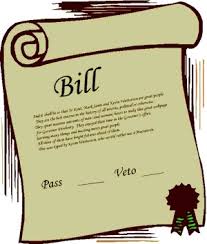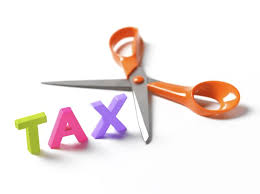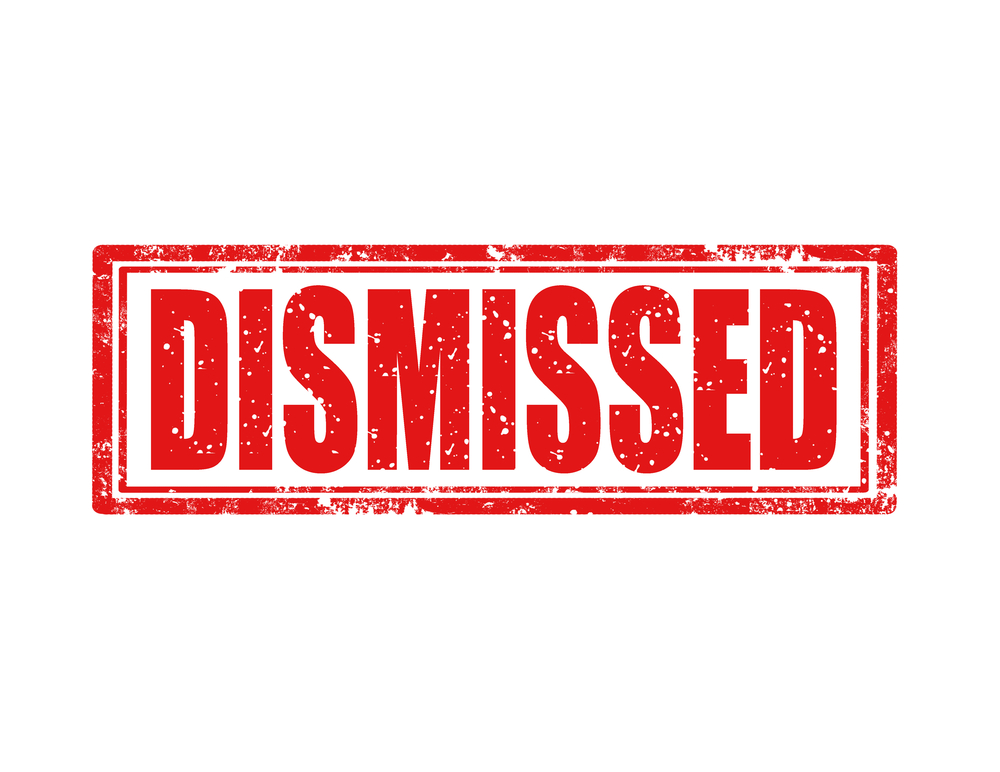Non-Eligible Foreign Medical School Debt is Discharged in Bankruptcy in Florida!
 One of our most successful cases this month was the discharge of private student loans for our client who attended a Caribbean medical school. The key was that the foreign medical school was not listed on the Federal Schools Codes List as being eligible for federal funding. That particular fact allowed us to obtain a full discharge of several hundred thousand dollars in private student loans. The loans were not “qualified educational loans” as that term is defined by the Internal Revenue Code and therefore were dischargeable under Section 523(a)(8) in an adversary proceeding.
One of our most successful cases this month was the discharge of private student loans for our client who attended a Caribbean medical school. The key was that the foreign medical school was not listed on the Federal Schools Codes List as being eligible for federal funding. That particular fact allowed us to obtain a full discharge of several hundred thousand dollars in private student loans. The loans were not “qualified educational loans” as that term is defined by the Internal Revenue Code and therefore were dischargeable under Section 523(a)(8) in an adversary proceeding.
This case, In re Lysiuk, Case No. 6:16-ap-00124-CCJ is available here. It was decided by Bankruptcy Judge Cynthia Jackson out of Orlando, Florida.
This case was not brought as a typical undue hardship. I felt it would be exceedingly difficult to prove under the existing Bruner Standard that our client met the burden to discharge his loans based upon hardship. While he was only making $10/hour when we filed the case, he was potentially capable of much more (despite being unable to pass the medical boards) and was young and healthy. So instead we chose to go the route of a more technical argument that was gaining ground in the United States but was still an issue of first impression in Florida.
For Those Consumer Activists out There: Please Call in to Vote AGAINST the Wrong Choice Act THIS WEEK!

Having a watchdog such as the Consumer Financial Protection Bureau (CFPB) out there looking out for consumers’ interests is a good thing. Please call your representative THIS WEEK.
The U.S. House of Representatives will vote this week on H.R. 10, the Financial Choice Act sponsored by Congressman Jeb Hensarling (R-TX). PLEASE CALL your representative and tell him or her to vote against the WRONG Choice Act.
Among many other dangerous elements, this radical bill eliminates the Consumer Financial Protection Bureau’s power over:
How Important is it to Complete Bankruptcy Schedules and Statement of Financial Affairs Accurately?
 It is very important to correctly reflect the assets of your bankruptcy estate and your intentions as well as meet all the other requirements to properly file a bankruptcy. Documents that appear thorough, accurate and complete when filed, tend to receive far less scrutiny. When in doubt, disclose, disclose and disclose. If the bankruptcy trustee believes a debtor, or even worse, debtor’s counsel, has not fully and truthfully disclosed all of the requested information, that trustee will question the debtor endlessly, and will also request documents from the debtor to prove the information in the petition. It’s important to hire competent and experienced bankruptcy counsel who has a good relationship of trust with the Chapter 7 and 13 trustees for this reason. Proper preparation of a bankruptcy petition is one of the most important things a debtor and debtor’s counsel can do:
It is very important to correctly reflect the assets of your bankruptcy estate and your intentions as well as meet all the other requirements to properly file a bankruptcy. Documents that appear thorough, accurate and complete when filed, tend to receive far less scrutiny. When in doubt, disclose, disclose and disclose. If the bankruptcy trustee believes a debtor, or even worse, debtor’s counsel, has not fully and truthfully disclosed all of the requested information, that trustee will question the debtor endlessly, and will also request documents from the debtor to prove the information in the petition. It’s important to hire competent and experienced bankruptcy counsel who has a good relationship of trust with the Chapter 7 and 13 trustees for this reason. Proper preparation of a bankruptcy petition is one of the most important things a debtor and debtor’s counsel can do:
- It ensures a quick and smooth 341 examination;
- The more complete the documentation is, the less questions a trustee needs to ask;
Help Stop Marketing and Debt Collection Ringless Voicemails — ACT TODAY! DEADLINE TODAY!

I implore you to go to the link below and provide a brief comment – we need help from consumers to keep the cell phone laws intact to stop invasive robocalls:
CBS News ran a terrific prime-time piece last night, featuring NCLC’s Margot Saunders, on TextCaster’s request that the FCC rule that the TCPA does not apply to ringless voicemail. It’s just a bit over two minutes long and is worth viewing:
http://www.cbsnews.com/videos/companies-want-robocalls-to-go-straight-to-your-voicemail/
Bankruptcy and Child Support Obligations

According to the US Census Bureau, and their latest full year of researched data on child support payments (2007), of the $34 billion dollars in child support that was owed, nearly 62% of it was reported as received by the end of the year. What does that tell us? Well, it means that the United States Family Court system puts an extremely high priority and value on a parent’s child support obligation. This is a good thing, but if you believe that bankruptcy absolves your child support obligations, then this might be a sobering moment for you. Let me explain what happens with child support during bankruptcy.
Domestic Support Obligation
Child support is classified as a Domestic Support Obligation (DSO), and is therefore not protected under the umbrella of bankruptcy; it is referred to as a non-dischargeable debt. This applies to past, present, and future support payments. In addition, the “automatic stay” technique cannot halt or delay the collection efforts of DSOs. Nationally, you will find the same regulations, even though different jurisdictions have their own terminology for it.
Are You Being Sued For a Deficiency Judgment Following a Short Sale?
If you closed on a short sale in the last five years and did not obtain a waiver of the unpaid balance owed to the first mortgage holder, you are at risk of now being sued for the difference – called a deficiency balance. This could be for tens or hundreds of thousands of dollars.

Lawsuits for deficiency judgments are likely to pick up in Florida following a recent case which held that the statute of limitations is five years following the short sale rather than the one year after a foreclosure sale. We were afraid this might happen and we advised our clients during the height of the short sales not to close without a deficiency waiver.
So any short sale that occurred before mid 2012 would be safe, those short sales that closed after mid 2012 are at risk.
Help, I’m Being Sued by NCSLT (National Collegiate Student Loan Trust)
What should you do if you are sued by NCSLT for student loans?
In recent years, lawsuits brought by the National Collegiate Student Loan Trusts (NCSLT) has become an epidemic. Defending these cases can be fun and rewarding. Often, consumers are faced with a lawsuit for tens of thousands of dollars on a loan they barely remember, from a trust they have never heard from. They are often sued in multiple cases. The deficiencies in the collectors’ proof have been well documented. We raise many evidentiary and standing issues and conduct discovery to prevent a judgment. Some clients are simply not collectible. Between the legal problems with the cases and often times the financial condition of our clients, we can often obtain dismissals with prejudice – meaning they forgive the debt in full and agree not to come after our clients in a future case.
We had nine dismissals today. This is life changing for our clients. It can change your life too for the better. These cases can be defended and can be settled for reasonable amounts. If you haven’t been sued yet, please consult with an attorney about your rights – you’ll likely be sued in the next year as we are seeing more and more of these cases be filed. For more information, we offer a free consultation and have tons of information on our blog and website at Arkovich Law
Consumer Bankruptcy and Tax Debt – How to Discharge your Federal Tax Debt

Bankruptcy enables you to write off income taxes more than three-years old. However, bankruptcy cannot get rid of all back taxes. There are many qualifications and stipulations regarding what taxes you can and cannot write off under bankruptcy. Our Florida bankruptcy clients are often able to discharge more taxes than they previously thought – see our website or contact us for a free consultation.
Federal and State
Because there are two different types of income tax: state and federal. The specific bankruptcy guidelines between state and the federal government vary as well.
Arkovich interviewed for Fox 13 News Story: Americans are Living with Too Much Debt

In examining the typical debt that a person lives with nowadays, Sorboni Banerjee, Fox News Consumer Reporter, interviewed Tampa, Florida Student Loan Attorney Christie Arkovich for a news story on Monday. The portion dealing with student loan debt is copied below:
Christie Arkovich specializes in helping people negotiate their student loans down. She says when students first graduate it’s usually not that bad, but as they push back payments, the problem balloons. “When grads first graduate, it’s mid 30’s and that’s actually sustainable if you have a job that pays $30,000 to $35,000. That’s a one-to-one ratio that’s usually OK. But people run into trouble, they do forbearances where the balance keeps increasing, so most of what we see are 50 or 100 or beyond 100.”
That’s 100k people. That’s a house for many people. And many of these people received only two year degrees or may have even dropped out. Sorbani goes on to point to a recent study that found 70 percent of people said the reason they were delaying buying a house was because they’re swamped by their student loans. Americans owe more than $1.4 trillion in student loans which is about $620 billion more than the total U.S. credit card debt.
 Reboot Your Life: Tampa Student Loan and Bankruptcy Attorney Blog
Reboot Your Life: Tampa Student Loan and Bankruptcy Attorney Blog



